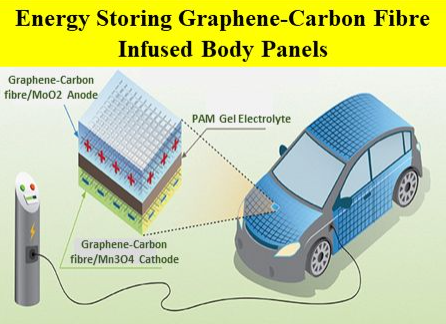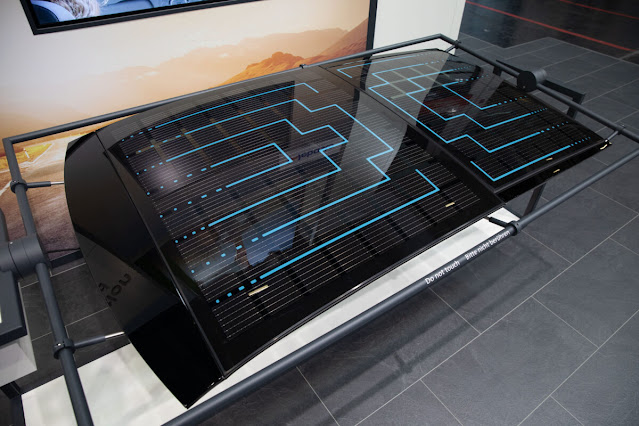🔋 Energized Body ody ody⚡🚘

Energized Composites for Electric Vehicles: A Dual Function Energy-Storing Supercapacitor-Based Carbon Fiber Composite for the Body Panels The current electric vehicles (EVs) face many challenges like limited charge capacity, low miles/charge, and long charging times. Herein, these issues are addressed by developing a dual-function supercapacitor-based energy-storing carbon fiber reinforced polymer (e-CFRP) that can store electrical energy and function as the structural component for the EV's body shell. This is achieved by developing a unique design, vertically aligned graphene sheets attached to carbon fiber electrodes on which different metal oxides are deposited to obtain high-energy density electrodes. A high-strength multilayer e-CFRP assembly is fabricated using an alternate layer patterning configuration of epoxy and polyacrylamide gel electrolyte. The e-CFRP so developed delivers a high areal energy density of 0.31 mWh cm –2 at 0.3 mm thickness and a high tensile str...




